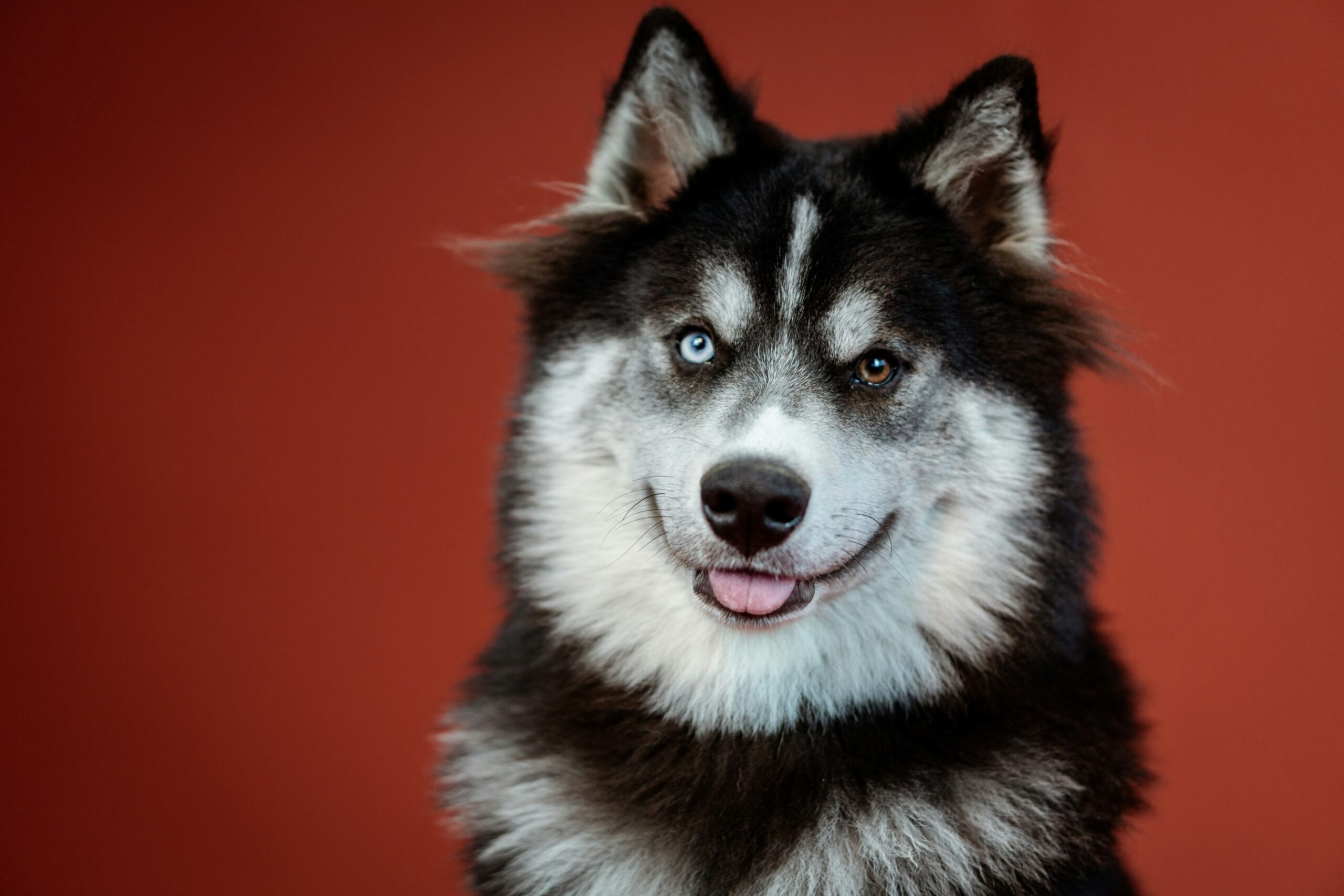There’s something about a Husky that grabs people. Maybe it’s those icy blue eyes. Or the wild-wolf look. Or the endless memes of them howling like banshees because their dinner is three minutes late.
Whatever the reason, Huskies are one of the most captivating and most misunderstood—dog breeds out there. So if you’re thinking about adopting one from a rescue? That’s awesome.
But there’s a little more to it than falling in love with a pretty face.
Let’s talk about what it really means to bring home a rescue Husky and whether it’s the right fit for you.
First Things First: What Makes Huskies… Huskies?
Siberian Huskies were bred to pull sleds across freezing terrain. That means they’re built for stamina, not snoozing. These dogs are:
- Highly intelligent (read: escape artists)
- Vocal (like, sing-you-the-song-of-their-people loud)
- Pack-oriented (they get lonely fast)
- Active,like marathon-runner active
- Surprisingly gentle with humans (when socialized properly)
They’re not guard dogs. They’re not apartment lapdogs. And they’re not going to be cool with being home alone for 10 hours while you work and hope the couch survives.
So why do so many people adopt Huskies, then end up surrendering them?
Simple: they didn’t know what they were signing up for.
The Rescue Reality: Why So Many Huskies End Up in Shelters
The truth is heartbreaking.
Huskies are one of the most commonly surrendered breeds in shelters and rescue groups across the U.S.not because they’re “bad dogs,” but because people weren’t prepared.
That fluffy coat? It sheds. Constantly. In massive tufts. Twice a year, it’s like a snowstorm blew through your living room. That majestic howl? Cute on TikTok, less so at 3 a.m. in a condo building.
And energy? They’ve got it in spades. Without regular mental and physical stimulation, a bored Husky can and will turn your shoes, sofa, or drywall into chew toys.
That’s why groups like Siberian Husky Rescue Washington, Siberian Husky Rescue MD, and Siberian Husky Rescue Virginia are working overtime. They’re trying to rehome dogs that were misunderstood, not misbehaved.
Rescue Husky vs. Puppy Husky: Big Difference
Rescue Huskies aren’t blank slates. They’ve got a past. Some come from loving homes that couldn’t keep them; others come from neglect or worse.
The good news? Huskies are resilient.
Rescue orgs like those in Maryland, Virginia, and Washington tend to do extensive behavioral assessments. You’ll know if the Husky is good with kids, cats, other dogs—or if they need a very specific type of home.
One important note: many rescued Huskies are escape-prone. If your fence isn’t Husky-proof, you’ll want to fix that before you bring one home. These dogs can leap, dig, or maneuver their way out of what seems like a fortress.
What a Husky Needs From You
Let’s be clear you don’t need to be a sled dog racer to adopt a Husky. But you do need to be prepared for the breed’s intensity.
Here’s what a Husky needs to thrive:
- Exercise, daily: Not just a walk around the block. We’re talking runs, hikes, play sessions, dog parks, flirt poles whatever gets them moving.
- Mental challenges: Puzzle toys, training drills, agility practice this isn’t an “optional” bonus. It keeps them sane.
- Companionship: Huskies are pack animals. If you’re gone a lot, another dog (or a lot of human interaction) is vital.
- A secure yard: And we mean secure. Think 6-ft fencing and maybe even underground reinforcement.
- Grooming commitment: You don’t need to pay for a pro groomer, but you do need to brush that double coat often especially during shedding season.
- Patience and humor: Because Huskies will test you. In hilarious and sometimes maddening ways.
So You Still Want a Husky? (Awesome, Here’s How to Start)
If you’re nodding along like, “Yep, I can handle that,” then congrats you’re already ahead of the curve.
Next step: find a legit rescue.
Here are some great breed-specific and regional places to check:
- Siberian Husky Rescue Washington: Great for those in the Pacific Northwest. They’re transparent, experienced, and full of breed knowledge.
- Siberian Husky Rescue MD: Covers much of the mid-Atlantic and partners with fosters who know Huskies inside and out.
- Siberian Husky Rescue Virginia: Known for helping Huskies from rough situations transition into loving homes.
When you connect with a rescue, expect an application process. They’ll want to know about your lifestyle, your home setup, other pets, and your experience with dogs (especially high-energy breeds).
The Matchmaking Magic of Rescue Groups
A great rescue won’t just shove a dog in your arms and wish you luck. They’re matchmakers.
You might go in thinking you want a young male Husky, and they’ll suggest a calm 4-year-old female instead. And you know what? That dog might be perfect for your pace of life.
The best part? These dogs are usually fostered in homes not kennels so the rescue knows their personalities. Whether they’re couch cuddlers or squirrel chasers, you’ll get the real scoop.
Living With a Rescue Husky: What to Expect
So you’ve brought your Husky home. What now?
Expect an adjustment period especially if they’ve bounced around a bit. It can take weeks (even months) for a rescue dog to truly settle.
Some things you might see:
- Restlessness, pacing, or whining at night
- Resource guarding (especially food or toys)
- Leash reactivity or pull-heavy walks
- Surprising behaviors (like burying things, howling at sirens, or rearranging your shoe rack)
It’s all part of their unpacking process.
That’s where positive reinforcement training and consistency become your best tools. And if you hit a wall? Reach out. Most Husky rescues offer post-adoption support, or can recommend breed-savvy trainers.
Still Thinking of Other Breeds? That’s Totally Okay
Maybe halfway through this you’re thinking, “You know what? I love Huskies but maybe not for me.”
No shame in that!
You can still rescue a dog that suits your lifestyle better. There are breed-specific rescues for all kinds of personalities:
- Labrador Retriever Rescue VA or Lab Rescue of Richmond if you want a loyal, lower-drama adventure buddy.
- Goldendoodle Rescue Maryland for folks looking for friendly, allergy-friendly dogs.
- Dachshund Rescue Maryland for people who love a small dog with a big bark.
- Yorkshire Terrier Rescue Virginia if you want a feisty little fluff ball.
- Pugs for Adoption in MD or Washington if you’re a couch-loving introvert.
You might also want to check out Miniature Pinscher rescue near me, Cavalier King Charles Spaniel Rescue Virginia, or even French Bulldog Rescue Maryland if you’re looking for smaller, less demanding breeds (though “low-maintenance” is a myth).
There’s a perfect pup out there. Promise.
Final Thoughts: A Husky Isn’t for Everyone, But It Might Be for You
Here’s the honest truth: adopting a rescue Husky isn’t a casual decision. It’s a lifestyle choice.
But if you’re the kind of person who hikes for fun, loves a challenge, and doesn’t mind a little hair on everything? Then there’s no better companion than a Husky.
They’ll test your patience. They’ll steal your socks. They’ll sing the song of their people at awkward times.
But they’ll also adore you with that deep, soulful loyalty only a rescue dog can give.
So go ahead fill out that application. Get the house Husky-ready. And prepare for a life that’s wilder, louder, and a whole lot more joyful than you expected.








